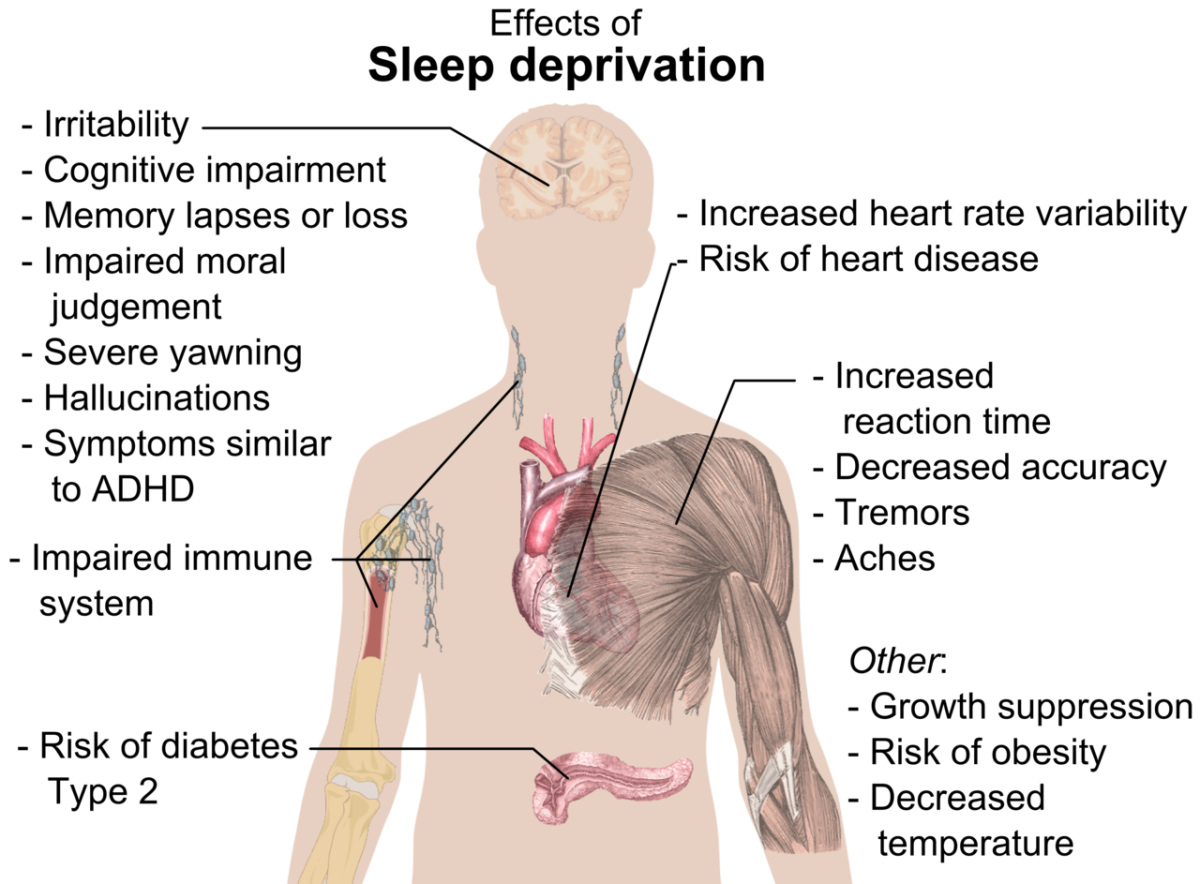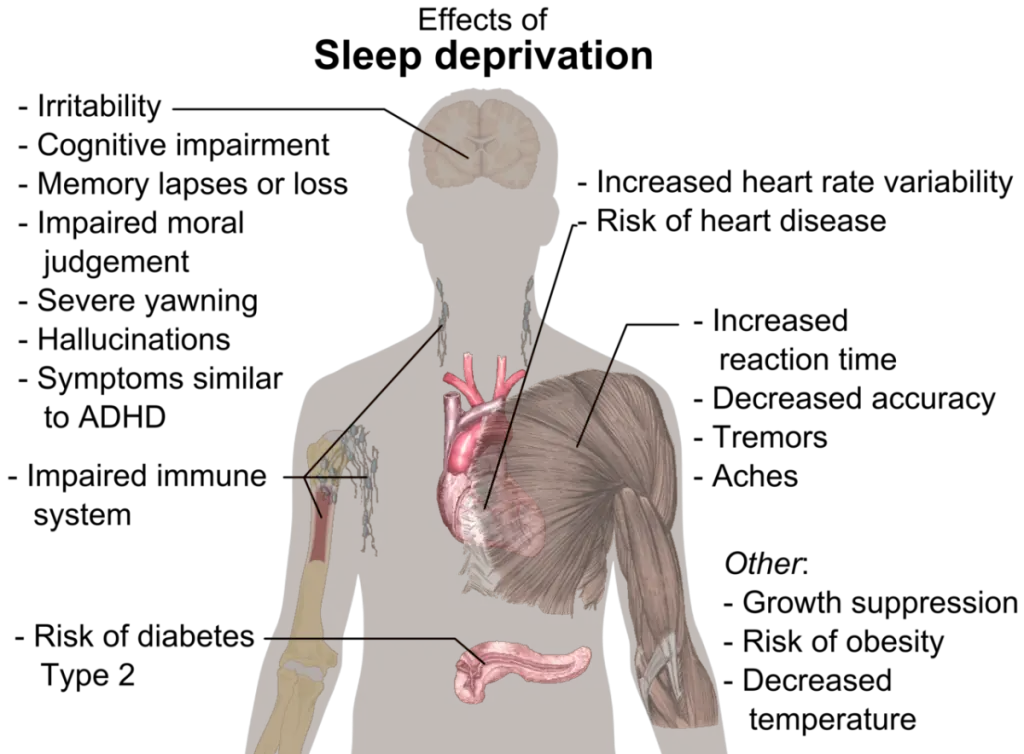Last Updated on April 14, 2023 by Francis
Have you ever woken up in the middle of the night and heard yourself moaning? Or maybe you’ve heard someone else moaning in their sleep? It’s an odd and mysterious phenomenon, but why do we moan in our sleep? In this article, we’ll explore the possible causes of moaning in sleep and find out what it means. So, if you’re wondering why you or your partner are moaning in your sleep, read on to find out more.
Moaning in your sleep is a common phenomenon and can be caused by a variety of conditions such as stress and anxiety. Other possible causes include sleep apnea, nightmares, night terrors, sleep talking, and even physical pain. If you are concerned about the moaning, it is best to consult your doctor so that they can determine the underlying cause. Your doctor may suggest lifestyle changes, such as relaxation techniques, which can help reduce the moaning. In some cases, medications or medical devices may be recommended to help address the underlying cause of your moaning.

Contents
What is Moaning in Sleep?
Moaning in sleep is a type of vocalization which occurs during sleep. It can be heard by others in the same room or through a wall. It is not always clear what is being said, although some people can make out words. Moaning in sleep is often accompanied by other types of vocalizations such as sighing, groaning and mumbling.
The exact cause of moaning in sleep is unknown, although it is thought to be related to the dream state. It may be an expression of emotion experienced in a dream, or an attempt to communicate something to someone else in the dream. People who moan in their sleep may not remember doing it, or may remember what they were dreaming about when they did it.
Moaning in sleep can also be a sign of a sleep disorder or medical condition. Sleep apnea, for example, is a condition in which breathing stops for short periods of time during sleep. This can cause snoring, gasping, and other noises. Other conditions such as sleep talking, restlessness, and sleepwalking may also be associated with moaning in sleep.
Causes of Moaning in Sleep
There are several possible causes of moaning in sleep, including psychological, physical, and medical factors.
Psychological factors may include stress, anxiety, or depression. People who are under high levels of stress or who are struggling with a mental health issue may be more likely to moan in their sleep. It is thought that the emotional distress associated with these conditions may be expressed in the form of vocalizations during sleep.
Physical factors such as sleep deprivation, alcohol consumption, and drug use can also contribute to moaning in sleep. These substances can cause changes in the sleep-wake cycle which can lead to vocalizations while asleep.
Finally, medical conditions such as sleep apnea and narcolepsy can also cause moaning in sleep. These conditions can cause disruptions in normal sleep patterns and lead to vocalizations.
Symptoms of Moaning in Sleep
The main symptom of moaning in sleep is the vocalization itself. This can range from a low, soft sound to a loud, shouted phrase. It is often accompanied by other vocalizations such as sighing, groaning, and mumbling.
In some cases, people may also experience physical symptoms such as restlessness, sweating, and shaking. These are signs of a more serious condition and should be discussed with a doctor.
Treatment of Moaning in Sleep
The treatment of moaning in sleep will depend on the underlying cause. If the cause is psychological, then treatment may involve psychotherapy, medications, or lifestyle changes. If the cause is physical, then treatment may involve medications or lifestyle changes.
If the cause is a medical condition, then treatment will depend on the condition. Sleep apnea, for example, is usually treated with a continuous positive airway pressure (CPAP) machine which helps keep the airways open. Narcolepsy, on the other hand, is usually treated with medications.
Prevention of Moaning in Sleep
Preventing moaning in sleep is not always possible, as it can be caused by psychological or medical conditions. However, there are steps that can be taken to reduce the risk of moaning in sleep.
These include getting enough sleep, avoiding alcohol and drugs, reducing stress and anxiety, and treating underlying medical conditions. It is also important to talk to a doctor if the problem persists or if other symptoms are present.
Frequently Asked Questions
What Causes Moaning in Sleep?
Moaning in sleep is usually caused by a condition called Catathrenia, which is a type of parasomnia, or abnormal behavior during sleep. This condition is characterized by moaning, groaning, or sighing during sleep. It can be caused by a variety of physical and psychological factors, such as anxiety, stress, depression, or physical pain. It can also be caused by a disruption in the sleep-wake cycle, or by certain medications or medical conditions.
Are There Any Health Risks Associated With Moaning in Sleep?
There are no known health risks associated with moaning in sleep, and the condition is generally not dangerous. However, in some cases, it can cause disturbed sleep or distress to the sleeper. If this is the case, the condition should be discussed with a medical professional to determine the cause and the best course of treatment.
How Can Moaning in Sleep Be Prevented or Treated?
Moaning in sleep can be prevented by avoiding stress, getting adequate sleep, and avoiding medications or substances that may disrupt the sleep-wake cycle. If the condition is caused by an underlying medical condition, such as anxiety or depression, then treatment for the underlying condition may help to reduce or eliminate the moaning in sleep.
Can Moaning in Sleep Affect Partners or Roommates?
Yes, moaning in sleep can be disruptive to partners or roommates, as it can disturb their sleep. It is important to discuss the condition with roommates or partners, and to take steps to reduce the disruption. This may include using noise-canceling headphones or earplugs, or sleeping in a separate room.
What Are Some Other Types of Parasomnias?
In addition to Catathrenia, other types of parasomnias include sleepwalking, nightmares, sleep paralysis, sleep terrors, REM sleep behavior disorder, and more. These conditions can range from mild to severe, and can have a variety of causes. Treatment for these conditions may include medication, lifestyle changes, or cognitive behavior therapy.
Can Moaning in Sleep Be Controlled?
Yes, in some cases, moaning in sleep can be controlled. Treatment for the underlying cause may help reduce or eliminate the moaning in sleep. This could include lifestyle changes, such as getting more sleep and reducing stress, or medications for underlying conditions such as anxiety or depression. In some cases, cognitive behavior therapy may also help to reduce or eliminate the moaning in sleep.
6 Strange Sleep Disorders
In conclusion, the reasons why someone may moan in their sleep vary and can be related to physical, emotional, and physiological factors. While many people may moan in their sleep without any underlying medical issues, it is still important to consult with a doctor if the moaning becomes frequent. A doctor can help determine if there is an underlying medical condition causing the moaning and provide treatment options. Ultimately, understanding why someone may moan in their sleep can help provide insight into their overall health and wellbeing.






